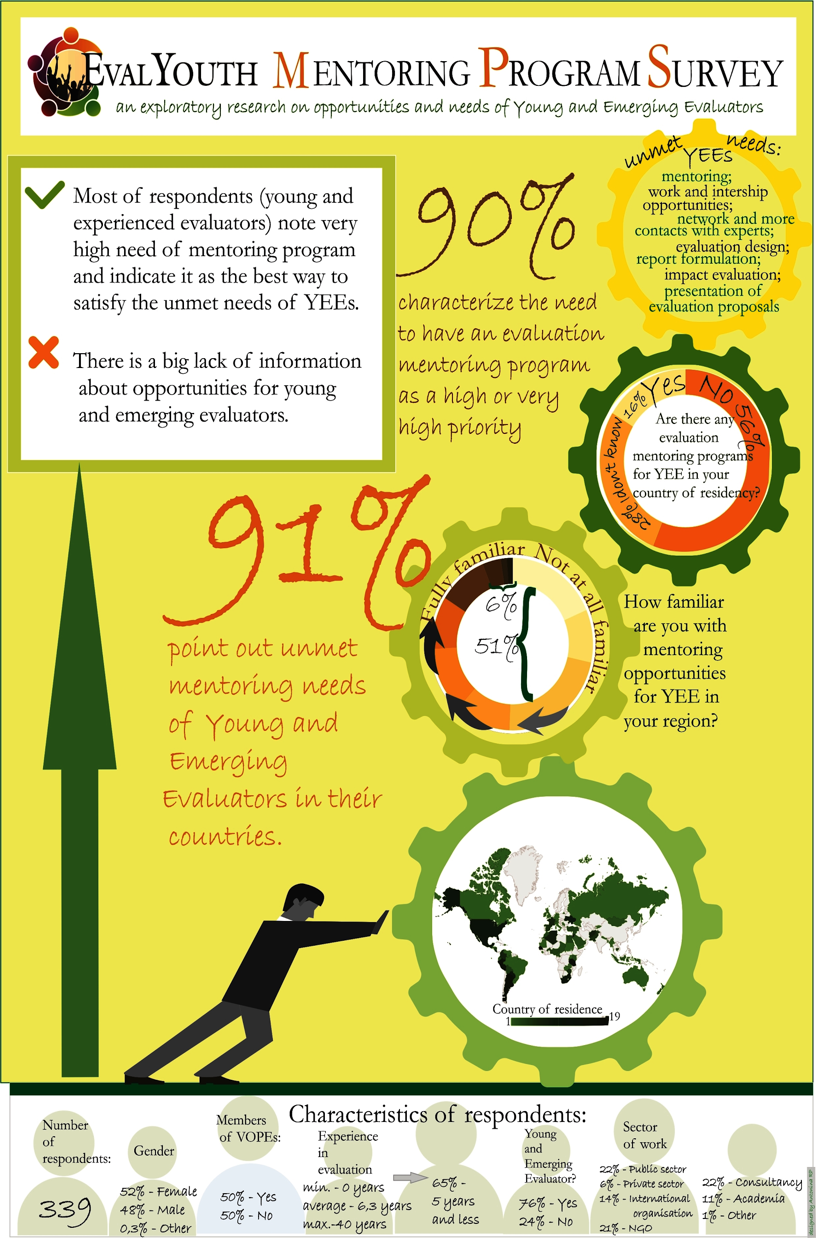Hi Colleagues! We are Antonella Guidoccio, Mohamed Rage, and Qudratullah Jahid and we coordinate Task Force 2 charged with developing a mentoring program for Young and Emerging Evaluators (YEEs). We want to share our experience of how to design a mentoring program in a collaborative and inclusive way.
We started by conducting a needs and assets assessment to: a) understand the ways in which organizations that commission and/or use evaluation engage in YEE mentoring; and b) identify YEE mentoring gaps and opportunities for potential solutions.
Hot Tips: Gathering the same type of data across multiple regions is possible, but takes planning. Below are the steps we implemented, which might be of use to others who are interested in doing surveys in more than one language:
- Identify multilingual volunteers, in our case a YEE, who can help translate the survey in 6 languages (English, French, Spanish, Arabic, Russian, and Ukrainian).
- Implement a pilot of the survey to assess survey clarity and respondent fatigue.
- Partner with VOPEs (Voluntary Organizations for Professional Evaluation) to distribute the survey to their members.
- Engage multilingual volunteers, again YEEs in our case, to do the data analysis in the different languages.
- Conduct online workshops with Task Force members to discuss the findings in regards to the questions, and draw inferences from results about the design of a mentoring program (our goal).
Lessons Learned: We heard from over 300 individuals across 19 countries. These individuals had either had a We are still in the design phase of our program, but some interesting findings have emerged:
- 90% of respondents characterized the need to have an evaluation mentoring program as a “high” priority;
- 91% of respondents described unmet mentoring needs of YEEs in their countries;
- Unmet mentoring needs of YEEs include more support in terms of work and internship opportunities, the opportunity to networking with experts, the need for more training in evaluation design, including report and evaluation proposal formulation; and
- Overwhelmingly, respondents mentioned that the most appealing format for the mentoring program is an initial face-to-face meeting, with online follow up.
Below is an infographic that was designed by one of our task force members, Antonina Rishko-Porcescu, which summarizes the most important findings of the survey:
Get Involved: These are a few rad resources for you to look at:
- Are you or have you been an evaluation mentor or mentee? Did you have experiences that you believe we should hear about? If so, please send us an email (EvalYouth@gmail.com).
- The Task Force is working on the formal dissemination of the results of the survey and on finalizing the design of the Mentoring Program. To be among the first to receive updates, follow us on Facebook, Twitter, or LinkedIn.
The American Evaluation Association is celebrating EvalYouth week. EvalYouth addresses the need to include youth and young people in evaluation. The contributions all this week to aea365 come from members of EvalYouth. Do you have questions, concerns, kudos, or content to extend this aea365 contribution? Please add them in the comments section for this post on the aea365 webpage so that we may enrich our community of practice. Would you like to submit an aea365 Tip? Please send a note of interest to aea365@eval.org. aea365 is sponsored by the American Evaluation Association and provides a Tip-a-Day by and for evaluators.

